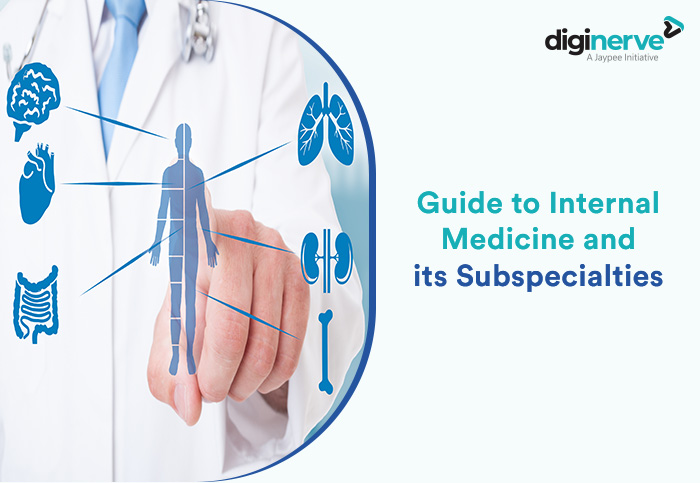Experts in Internal Medicine are required to have an intensive knowledge of entire human body, including the organ systems. An expert in Internal medicine possesses special skills to handle complex ailments which affect more than one organ, or more than one system. Diagnosis and treatment of severe chronic illness are also included in the diverse role of an Internal Medicine specialist. A few focus areas of internal medicine subspecialties are – ailments of the heart and vascular system, gastrointestinal system comprising the liver, stomach and gall bladder, endocrinology, diabetes, blood, infectious diseases, kidney, respiratory system (diaphragm, lungs), cancers, joints and musculoskeletal system, sports medicine, sleep disorders, neurocritical ailments, hospice, palliative care, critical care, allergy, vaccine, and geriatric care.
A medicine aspirant after pursuing a MD degree can further pursue
a subspecialty. Here are a few tips for excelling in subspecialties of Internal
Medicine.
1. Make a lesson-wise plan or make a daily routine – whatever works for you. Follow the Archith Boloor Medicine book or online course to get your concepts clear and understand the clinical case scenarios. The book is instrumental for learning the fundamentals of Internal medicine.
2. Subscribe to renowned Internal medicine course, preferably an online one to stay informed about the latest advancements and developments regarding individual subspecialty topics. Staying updated will expand one’s knowledge base on UG concepts of Internal Medicine, and thus, help a student to stay ahead of the competition. In the long run, all these will help a student to pursue the subspecialty of his or her choice.
3. Subscribing to a top grade online Internal Medicine course has many advantages. Besides making a student knowledgeable in chosen subspecialty, it also offers platforms to network with gold standard faculty from across India, peers and other professionals related to healthcare. A student who has amassed practical skills in prognosis, diagnosis and treatments can explore opportunities in their network and can put their skills to best use.
4. Gain the
latest industry insights. Since Internal Medicine is a vast subject by itself, it
is essential that medical aspirants stay updated with the current healthcare
practices, availability of new equipments and technology, and new approaches
for solving challenges. These will help the aspirants develop professionally
and become a top doc in future. Ramadas Nayak Medicine is a gold standard textbook which contains
updated information and case studies from around the world.
5.
Observe the minute details. Since Internal Medicine deals with
critical ailments, often a combination of ailments, it can be possible that a
patient will be unable to state the symptoms properly. Doctors should listen to
patients carefully, try to understand the problem and find clinical relevance.
An expert in Internal Medicine should have a keen knowledge of the symptoms and
should be proficient enough to detect the triggers. One of the best ways to
learn Internal Medicine is by taking care of patients. That way one can also broaden
one’s professional experience.
A concept-based learning approach works best for mastering the
concepts of Internal Medicine. It is always advised to link the concepts with
the real life scenarios for better understanding and retention.
Internal medicine subspecialties witness high competition. The long hours
of work, study, practicals and postings result
in a rewarding career. An intern of Internal medicine is expected to handle new
challenges every day, hence an aspirant of internal medicine should be mentally
prepared. Seek guidance from eminent faculty of Internal medicine for mastering
the subspecialties.

Comments
Post a Comment